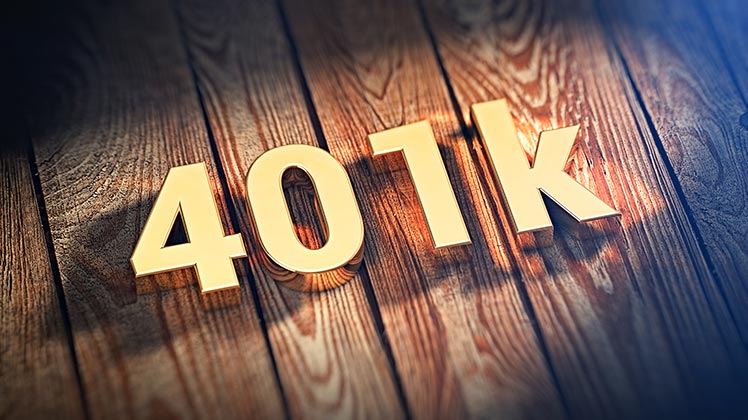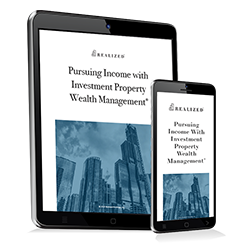
A 401K is a retirement plan offered by employers to their employees. Employee contributions fund a 401K. Contributions are tax-free and come directly out of the employee's paycheck. 401K plan features vary widely across employers. This means a range of fees, investment offerings, employer match, vesting periods, and more. In this article, we'll explore the ins and outs of 401K retirement plans.
401K Basics
A 401K is named after a section in the IRS tax code called 401, subsection k. Its formal spelling is 401(k), but many people use 401K or 401k. The 401K was created to encourage people to save for retirement. It is a tax-advantaged account. Money (i.e., contributions) that goes into a 401K is tax-free. Contributions are taken out of an employee's paycheck as pre-tax dollars. Because some of an employee's income is going towards retirement, they reduce their taxable income. When the money comes out in retirement (i.e., distributions), it is taxed. Gains, interest, and dividends all grow tax-free.
Money that comes out during retirement as distributions is taxed at the ordinary income tax rate. For some people, this can mean a lower tax rate than when they were working. You must wait until age 59.5 before taking distributions. Otherwise, you’ll incur penalties and taxes on withdrawals. There are a couple of exceptions, though. These include using 401K funds for extensive medical or disability expenses.
For people who want tax-free retirement distributions, there's the Roth 401K. Contributions to this plan are taxed (i.e., after-tax contributions). The fund grows tax-free, and distributions are also tax-free. Like a 401K, you must wait until age 59.5 to begin withdrawals. Otherwise, you'll incur taxes and penalties.
Some people choose the 401K option if they believe their tax rate will be lower in retirement. Others choose the Roth 401K option if they believe their tax rate will be higher in retirement. While many companies offer a 401K, not as many offer a Roth 401K.
401K Limits
Contribution limits for 401Ks didn’t change from 2020 to 2021. It is still $19,500. For employees ages 50 and older, the "catch-up" contribution limit remained $6,500 as well, for a total annual contribution of $26,000.
The $19,500 limit includes contributions to Traditional 401Ks and Roth 401Ks. IRA contributions do not affect 401K contributions.
Company Match
Some companies offer a match on employee contributions to their retirement account. This is basically free money. Also, the match doesn’t count toward your contribution limit.
Let’s look at an example to see how matches work. Your salary is $75,000 and your company has a 50% match up to 6%. This means you’ll receive 50% more contribution to your 401K, up to 6% of your salary, or $4,500
Below are a few scenarios of what the match looks like based on annual contribution amounts:
Scenario 1:
- Employee contribution: $4,000
- Company match: $2,000
- Total contribution: $6,000
- Counts toward 401K limit: $4,000
Scenario 2:
- Employee contribution: $10,000
- Company match: $4,500
- Total contribution: $14,500
- Counts toward 401K limit: $10,000
Some companies will have a vesting period for company match contributions. A vesting period defines the amount of time you need to remain with the company before any funds become yours. For example, if 50% of your match vests after two years and then 100% after three years, you’ll need to remain with the company for three years to receive 100% of your match. After three years, there may be no more vesting restrictions, and in that case, you can leave at any time and take all of your match contributions with you.
It’s important to understand all the restrictions that go into a company’s vesting period. Not doing so can mean leaving a lot of money on the table.
Available Investments
Companies choose (or the plan provider chooses) which investments are available to employees in their 401K plans. Depending on the employer, you might have a great selection of investment choices, or there may only be a handful. Fees are also important and can range widely.
Most 401K plans restrict their investment types to bond and stock mutual funds. If you want a better selection of investment options, check if the company offers a self-directed 401K option.
Fees
401K plans can have administration fees, investment fees, and fund fees. Administration fees incurred monthly or quarterly and charged for using the plan are less common. Investment fees are advisory-related fees. This is for the services of an investment advisor. However, many companies are offering investment advisory services for free as part of their 401K plan. Fund fees are common across 401K plans. These fees are charged as a management fee on any fund that you are invested in.
For employees, 401Ks provide an opportunity to save for retirement. Some companies have even started automatically opting employees into their 401K plan. Company matches provide an excellent way for employees to boost their 401K growth. In some cases, there may be an opportunity to choose between a 401K or Roth 401K. It’s best to work with your tax advisor to understand which plan might be right for you.



